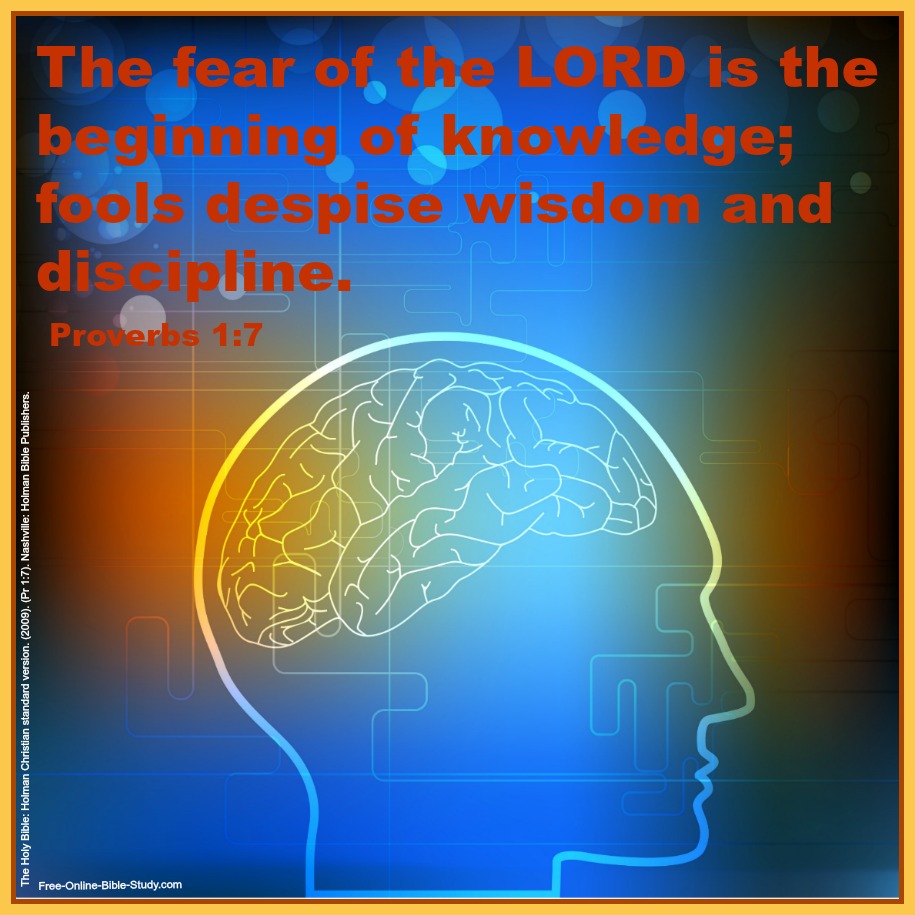- Bible Study Lessons
- Proverbs
- Proverbs Chapter 1
Proverbs Chapter 1
The Hebrew children of centuries past learned from Proverbs Chapter 1 about the pitfalls of life and the skills necessary to avoid them.
Still today this Book of Proverbs continues to provide practical advice for our every-day lives and wisdom for living the life of a Christian disciple.
I pray that you will see the profit of heeding the advice given here in Proverbs Chapter 1 and pursue the wisdom it offers for you and your loved ones.
Proverbs Chapter 1 Verses 1 - 7
1 The proverbs of Solomon the son of David, king of Israel;
2 To know wisdom and instruction; To perceive the words of understanding;
3 To receive the instruction of wisdom, Justice, and judgment, and equity;
4 To give subtilty to the simple, To the young man knowledge and discretion.
5 A wise man will hear, and will increase learning; And a man of understanding shall attain unto wise counsels:
6 To understand a proverb, and the interpretation; The words of the wise, and their dark sayings.
7 The fear of the Lord is the beginning of knowledge: But fools despise wisdom and instruction.
The Two Purposes of the Book of Proverbs
Proverbs Chapter 1, verse 2 provides the two purposes of the Book of Proverbs.
- The first purpose is to provide readers the knowledge necessary to become skillful in making wise decisions regarding life; as well as the training or discipline necessary to make wise decisions (vs. 2a).
- The second purpose is to help the reader acquire discernment that will allow him to understand the teachings of wisdom (vs. 2b). Discernment is wisdom in action. In this case, it is the application of proverbial teaching based on a correct spiritual understanding of the Scriptures.
The pursuit of wisdom and discernment is a quest or journey throughout the life of all men. Solomon displayed one of the greatest demonstrations of discernment in his request for wisdom over all other things.
Wisdom is key to our success or failure in the major areas of life but it must be accompanied by discipline. Solomon possessed great wisdom but he lacked the disciple to live skillfully, which led to idolatry and eventually split the kingdom.
The Two Addressees of the Book of Proverbs
We see in Proverbs Chapter 1 that this book is written to two different audiences:
- verse 3 is written to those who “will receive”
- verses five and six are written to those who “hear” and “understand”
The student or youth (vs. 4) is the audience here. He is beckoned to listen to instruction so that he might act with wisdom. The result of his obedience will demonstrate:
- the “rightness” in his manner of life (righteousness)
- the propriety or fitness of his decisions (justice)
- the pleasing aspects of his lifestyle (equity)
In contrast, verse four is written to those who “will give” prudence, knowledge, and discretion. This verse addresses the teacher or parent and exhorts him to impart wisdom to the simple or naive and gullible youth so that they might become shrewd.
A shrewd but youthful person armed with wisdom and knowledge will devise plans to best achieve his goals and bring honor to his parents. One can’t help but be reminded of biblical examples of shrewdness such as that of Joseph in his numerous and various dealings with the Egyptians.
What parent wouldn't want help their children see the pitfalls and traps of life and teach them these proverbs that are still relevant for our learning today?
The Two Responses to the Book of Proverbs
The Book of Proverbs explains that there are two responses to it.
- The fear or reverence of the Lord is the first response. The definition of fear is an expression of reverential submission to the Lord’s will and therefore characterizes a true worshipper. This reverence for God results in the beginning of knowledge; therefore, there is no true knowledge possible without reverence for God.
- The foolish reaction is the second response. It is fools who lack understanding, are morally unskilled, and refuse correction. Fools ultimately refuse the greatest gift of all time, the gift of eternal life provided by God to all who will believe in His Son Jesus Christ.
The Bible says in I Corinthians Chapter one that “the message of the cross is foolishness to those who are perishing, but to us who are being saved it is the power of God.”
Won’t you speak the wisdom of the gospel to someone today to help them understand their choice between the pitfall of damnation and the gift of the cross of Christ?
Conclusion
There are two paths before each of us.
One leads to damnation for eternity when we act foolishly and reject the free gift of salvation from God.
If you haven’t already, choose the other path! It’s wise because it results in a righteous manner of life, fit decisions, and a pleasing lifestyle.
Better than all of that it leads to eternal life!
